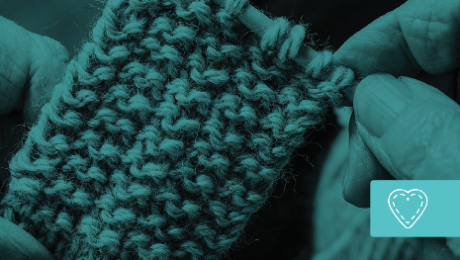HELPING SENIORS CREATE AN EMERGENCY CONTACT PLAN
- Published in ALZHEIMER, CAREGIVERS, DEMENTIA, IN HOME CARE
WHAT SENIORS NEED TO KNOW ABOUT OSTEOPOROSIS
How Osteoporosis Affects Seniors
It’s likely that more than 200 million people are living with osteoporosis—especially common among older women. Learn how to prevent or manage it this National Osteoporosis Month.
It’s likely that more than 200 million people are living with osteoporosis, a medical condition marked by having fragile bones. This condition is especially common among older women, and it can be dangerous. (NCBI)
May is National Osteoporosis Month. Since seniors are at greater risk of this disease, it’s important to learn how to prevent or manage osteoporosis.
The Basic Facts of Osteoporosis
What Is Osteoporosis?

Everybody relies on their bones for strength, support, and more. Osteoporosis is a disease that weakens bones. As a result, bones are fragile and susceptible to risks like breaks and fractures. When combined with conditions like arthritis, osteoporosis can make tasks like moving around risky and painful.
Potential Outcomes of Osteoporosis:
- Breaks and fractures
- Complications resulting from breaks & fractures
- Poor posture
- Limited mobility
What Causes It?
For many people, osteoporosis is a side effect of aging. However, it can be exacerbated and accelerated by conditions like rheumatoid arthritis, stroke, and some cancers. Certain medications and negative habits, like poor nutrition, can also contribute.
Diagnosing Osteoporosis
Osteoporosis is diagnosed through a bone mineral density (BMD) test. Other exams and laboratory tests are sometimes administered as well. (National Osteoporosis Foundation)
![]()
WHAT SENIORS NEED TO KNOW ABOUT OSTEOPOROSIS
Osteoporosis Awareness Month
Home Care Tip
Since seniors are at greater risk of osteoporosis and falling, it’s important for you to learn how to avoid falls, including arranging a home safely and knowing how to get up and down safely. (National Osteoporosis Foundation)
Symptoms of Osteoporosis
If you are experiencing any of the following signs of bone loss, it is essential you be screened for osteoporosis and other bone-related diseases:
- Loss of height
- Aches without injury
- Poor posture
- Oral bone loss conditions
- Regular fractures
(WebMD)
Risk Factors
- Being a woman
- Getting older
- Being of Caucasian or Asian descent
- Family history
- Small body frame
- Unhealthy diet
- Lack of exercise
(Mayo Clinic)
Preventing and Managing Osteoporosis
Prevention Tips
Preventing osteoporosis protects seniors from bone-related problems. Consider incorporating the following:
- Calcium
- Vitamin D
- Regular exercise
- A balanced diet
Managing Osteoporosis
- Learn to prevent falls and what to do in case of a fall
- See a doctor for regular monitoring of disease progression
- Eat a bone-healthy diet and follow an exercise regimen
- Take medication to treat osteoporosis
(American Family Physician)
References:
- Published in ALZHEIMER, CAREGIVERS, DEMENTIA, IN HOME CARE
UNDERSTAND CHOLESTEROL AND ITS EFFECTS ON IN HOME SENIORS CARE
Helping Seniors Maintain Healthy Cholesterol Levels
Cholesterol levels can be a source of stress for seniors. Here’s what seniors and their loved ones need to know.

Image extracted from 0319-Cholesterol-CMYK.pdf: 0319-Cholesterol-CMYK-page1-header.jpg
About 37 percent of U.S. adults have a higher than recommended LDL cholesterol level. Since this can increase risk of heart disease or stroke — and since seniors are already at higher risk of such health problems — it’s important for aging individuals to understand cholesterol. (Source: CDC)
What Cholesterol Is All About
Although many people think of cholesterol as something negative to avoid, cholesterol is actually a natural substance the body makes on its own. It helps cells make hormones, digest food, and more. Besides the cholesterol your body makes, you can also consume cholesterol in eggs, meat, and other foods.
There are three types of cholesterol doctors measure:
- High Density Lipoprotein (HDL)
- Low Density Lipoprotein (LDL)
- Triglycerides
HDL is considered “good” cholesterol because its function is to clear out LDL (“bad”) cholesterol, which can build up plaque in the arteries. Triglycerides can also accumulate and affect the heart. When doctors give patients their “cholesterol level,” higher HDL numbers are good news; higher LDL and/or triglyceride numbers are commonly referred to as “high cholesterol” and increase the risk of heart disease. (Source: MedlinePlus)
![]()
![]()
C A R E G I V E R S
Maintaining Healthy Cholesterol Levels
How to Manage Cholesterol Levels
Seniors tend to be at an elevated risk of heart disease simply because of the aging process. When a senior also has high cholesterol, their heart disease risk increases. It is important for seniors to manage their cholesterol levels in order to keep arteries clear and functional.
Here’s how cholesterol can be managed:
- Medication: There are a few medications that help lower bad cholesterol levels and increase HDL. The most common medications are called statins.
- Dietary Changes: Since cholesterol levels can be affected by what you eat, seniors with high LDL or triglycerides should:
- Avoid unhealthy fats
- Eat healthier fats
- Get plenty of fiber
- Reduce sugar intake
- Reach a healthy weight
- Exercise Regularly: The body can manage conditions like high cholesterol better if you are physically active. Exercise stimulates many important natural processes, and simply taking walks is a great start.
(Source: WebMD)
Risks Associated with Poor Cholesterol Levels
The consequences of having too much LDL cholesterol include:
- Clogged arteries
- Increased risk of heart disease
- Higher risk of stroke
- Reduced function of the cardiovascular system
(Source: MedicineNet)
Other Heart Disease Risk Factors
Besides high cholesterol, other risk factors for heart disease among seniors include:
- Race/ethnicity
- Smoking
- Conditions like diabetes or obesity
- Lack of physical activity
- Genetics
- High blood pressure
(Source: WebMD)
Home Care Tip
Seniors can often have high cholesterol without showing any symptoms. Encourage seniors to visit doctors regularly and receive recommended blood tests to check cholesterol levels, especially if they are at elevated risk due to obesity or a poor diet.
References:
- http://www.clearcareonline.com
- https://www.cdc.gov/cholesterol/facts.htm
- https://medlineplus.gov/cholesterol.html
- https://www.webmd.com/cholesterol-management/guide/steps-to-reduce-cholesterol
- https://www.medicinenet.com/cholesterol_management/article.htm
- https://www.webmd.com/heart-disease/risk-factors-heart-disease

- Published in ALZHEIMER, CAREGIVERS, DEMENTIA, IN HOME CARE
FINDING THE RIGHT MOBILITY AIDS FOR SENIORS
Mobility Aids for Seniors
Many seniors experience difficulty getting around independently. Mobility aids can offer stability and support. If a senior is unstable performing motions like sitting down or walking, it is essential to find mobility aids that fit their needs and ensure their safety.
Approximately 1/3 of older people living at home fall at least once a year. It’s common for seniors to need mobility aids for safety and support. (Source: MerckManuals)
Common Mobility Aids for Getting Around
For seniors living at home and maintaining a high level of independence, common mobility aids are designed to help them get around. Options include:

Canes
Designed to increase stability and compensate for minimal balance issues.

Walkers
Help support those with significant stability problems but moderate upper body strength.

Rollators
Designed for those with severe stability issues who lack upper body strength and balance.

Power Scooters
Support those who cannot walk long distances but have upper body control and stamina.

Wheelchairs
Offer mobility to those unable to walk safely on their own. Variations of steering ability available.
(Source: Aging Care)
FINDING THE RIGHT MOBILITY AIDS FOR SENIORS
C A R E G I V E R S
Possible Results of Senior Falls
Sometimes mobility issues are just inconvenient for seniors. Other times they put seniors at risk of falling. Falls can be very dangerous for the aging. Falling can result in:
- Bruises
- Fractures
- Breaks
- Need for physical therapy
- Surgical correction
- Hospitalization
- Death
(Source: MerckManuals)
Home Care Tip:
Style matters. If seniors seem unwilling to accept mobility aids, consider options that look sleek or fit their sense of style. Sometimes a device that feels personalized makes a difference for seniors struggling to accept necessary changes.
Mobility Problem Risk Factors
A number of issues can increase seniors’ risk of struggling with mobility and balance, including:
- Diminished eyesight
- Diabetes or heart disease
- Thyroid problems
- Nerve issues
- Medications
- Dizziness
- Muscle weakness
- Gait changes
- Postural hypotension
- Foot pain, deformities, or poorly-fitting footwear
- Confusion or memory problems
- Environmental factors like lack of lighting
(Source: NIA)
Paying for Mobility Aids
Insurance companies, as well as some grant or senior care nonprofits, may help cover the costs of mobility aids. Ask a doctor or local agency for the aging for ideas on where to start seeking financial assistance for mobility devices.
(Source: DailyCaring)
Mobility Aids for a Safer Home Environment
Some mobility aids aren’t designed to support long-range motion. Instead, they make the home environment safer and increase independence with specific tasks. Consider installing:
- Rails along stairs, near bathroom fixtures, in hallways, etc.
- Tub/bath transfer seats or benches
- Supportive seat cushions
- Grab handles for getting in/out of a car, bed, couch, or chair
- Rolling over-bed or over-couch tables
- Additional lighting or voice command lighting to improve visibility
- Non-slip flooring that is securely tacked down
- Stairlift
- Ramps to replace stairs
(Source: ScripHessCo)
© 2023 Mobility Aids Guide
- Published in ALZHEIMER, CAREGIVERS, DEMENTIA, IN HOME CARE
FUN CRAFTS TO DO WITH THE ELDERLY DURING HOLIDAYS
- Published in ALZHEIMER, CAREGIVERS, DEMENTIA, IN HOME CARE
CAREGIVER BURNOUT: SIGNS & COPING TIPS
Being a caregiver can be an exhausting and difficult task. It’s important to recognize caregiver burnout and cope healthily. Understanding caregiver burnout symptoms and coping mechanisms can help make caregiving more enjoyable and fulfilling. About 1 in 3 adults serves as an informal caregiver to another adult, like an aging parent or disabled relative. Although many find the opportunity to care for a loved one to be a privilege, it can also be demanding. Here is
how to cope effectively.
- Published in ALZHEIMER, CAREGIVERS, IN HOME CARE
ALZHEIMER’S AWARENESS
National Alzheimer’s Disease Awareness Month: What Caregivers Should Know
Understand the three stages of Alzheimer’s disease and how caregivers can help patients in each of these different stages
Alzheimer’s or Dementia?
Alzheimer’s and dementia are often confused and used interchangeably, but they are different.
Dementia is an umbrella term that refers to a list of different symptoms, one of those being brain and memory function. There are diseases other than Alzheimer’s which can cause dementia. When an individual is diagnosed with dementia, they are being diagnosed with a set of symptoms, without knowing what is specifically causing them. Some forms of dementia are temporary or reversible. Alzheimer’s disease is a form of dementia that specifically affects parts of the brain that control thought, memory and language. Symptoms of the disease include impaired thought, speech and confusion. Alzheimer’s is not reversible or curable.
10 signs of Alzheimer’s (www.alz.org)
Here are 10 warning signs and symptoms of a person having Alzheimer’s disease.
1. Memory loss that disrupts daily life
This is the most common sign. Forgetting information that was recently learned, forgetting important dates or events, asking the same information over and over and relying heavily on memory aids or other people for reminders are all signs of Alzheimer’s.
2. Challenges in planning or solving problems Individuals with Alzheimer’s may have difficulty following a plan or
Individuals with Alzheimer’s may have difficulty following a plan or working with numbers. They may be unable to follow a familiar recipe, keep track of monthly bills, or have difficulty concentrating and carrying out simple tasks that didn’t present a problem before.
3. Difficulty completing familiar tasks People with Alzheimer’s may find it hard to complete tasks such as driving to a familiar location, managing a budget, or remembering the rules to a favorite game.
People with Alzheimer’s may find it hard to complete tasks such as driving to a familiar location, managing a budget, or remembering the rules to a favorite game.
4. Confusing time or place Losing track of dates, seasons and time is a common sign of Alzheimer’s. People with the disease may forget where they are or not know which day of the week it is. They could also have trouble understanding something if it is not happening immediately.
Losing track of dates, seasons and time is a common sign of Alzheimer’s. People with the disease may forget where they are or not know which day of the week it is. They could also have trouble understanding something if it is not happening immediately.
5. Difficulty understanding visual images and spatial relationships Experiencing vision problems can be a sign of Alzheimer’s. Some people may have trouble reading, judging distance and determining colors.
Experiencing vision problems can be a sign of Alzheimer’s. Some people may have trouble reading, judging distance and determining colors.
6. Trouble with finding the right words People with Alzheimer’s may have trouble finding the right words. They may call items or people by the wrong name. They might stop in the middle of a sentence and not know how to continue.
People with Alzheimer’s may have trouble finding the right words. They may call items or people by the wrong name. They might stop in the middle of a sentence and not know how to continue.
7. Misplacing things and losing the ability to retrace their steps Individuals with Alzheimer’s may lose items and be unable to retrace their steps to find them. They might put things in odd places. They may even accuse others of stealing.
Individuals with Alzheimer’s may lose items and be unable to retrace their steps to find them. They might put things in odd places. They may even accuse others of stealing.
8. Decreased or poor judgement Alzheimer’s can affect the decision-making process. Therefore, people with the disease may use poor judgement such as giving money away to telemarketers or solicitors.
Alzheimer’s can affect the decision-making process. Therefore, people with the disease may use poor judgement such as giving money away to telemarketers or solicitors.
9. Withdrawal from activities
A person with Alzheimer’s might start to avoid being social and may even withdraw from hobbies, social activities, or work projects. They may have trouble remembering how to complete a favorite hobby or keep up with a favorite sports team.
10. Changes in mood or personality
Someone with the disease can become confused, anxious, fearful or depressed. They can get easily upset.
The 3 stages of Alzheimer’s (www.alz.org)
STAGE 1 | MILD ALZHEIMER’S (EARLY STAGE)
In the early stages of Alzheimer’s, friends and family may start to notice
their loved one experiencing difficulty remembering things such as
familiar words or the location of everyday objects.
Common symptoms include:
• Difficulty finding the right word for something
• Forgetting something they just read
• Not remembering names of people they were just introduced to
• Difficulty performing routine tasks at work or socially
• Losing or misplacing objects
• Trouble planning or organizing
WHAT CAREGIVERS CAN DO AT THIS STAGE:
Since the individual is still independent at this stage, a caregiver’s’
role can be to provide support and companionship. The person with
Alzheimer’s may need help with things like:
• Appointments
• Managing finances
• Remembering names or words
• Transportation
• Planning and organizing
• Keeping track of medication
It’s important to allow the person to maintain their independence as
much as possible and keep communication open for when they do
need assistance.
STAGE 2 | MODERATE ALZHEIMER’S DISEASE (MIDDLE STAGE)
This is usually the longest stage and individuals can stay in this stage for
several years. As the disease progresses, the need and level of care will
become greater. People at this stage may start to confuse words, get
angry or frustrated or act out in unexpected ways.
Symptoms will be more noticeable and include:
• Forgetting information such as their own address or telephone
number
• Feeling moody or withdrawn, especially in socially or mentally
challenging situations
• Changes in sleep patterns
• Forgetting events about their own life
• Being confused on what day it is or where they are
• Needing assistance picking out clothes that are appropriate for the
season or occasion
• Urinary and bowel incontinence
• Wandering and getting lost
• Personality and behavioral changes, including suspiciousness
and delusions
WHAT CAREGIVERS CAN DO AT THIS STAGE:
Individuals at this stage will require a greater level of care. The person
with Alzheimer’s may become frustrated and upset when they have
difficulty remembering things and names or trouble with daily activities
such as getting dressed. You will most likely have to adjust your daily
routine to include more structure for the individual with Alzheimer’s. At
this stage caregivers can:
• Use a calm voice when responding to questions to help the
person from getting upset or frustrated.
• Respond to the person’s emotion, instead of the question asked.
The individual may need reassurance.
• If the individual can still read, write out reminders for them.
Practice patience and sensitivity with patients in this stage. They
may become increasingly upset or frustrated as they lose more brain
function as well as their independence.
STAGE 3 | SEVERE ALZHEIMER’S DISEASE (LATE STAGE)
In the final stage of Alzheimer’s, personality changes may occur and
individuals need increasing help with daily activities. They may still use
words or phrases, but communicating emotion becomes difficult.
Symptoms and behaviors at this stage may include:
• Changes in physical abilities, including the ability to walk, sit and swallow
• Needing assistance with daily personal care
• Not knowing their surroundings or recalling recent experiences
• Increasingly difficulty communicating
• Vulnerability to infections, particularly pneumonia
WHAT CAREGIVERS CAN DO AT THIS STAGE:
Intensive, around-the-clock care is usually required at this stage and can last
from several weeks to several years. The role of the caregiver is to preserve the
quality of life and dignity for the individual. People in this stage will need help
with most activities including eating, dressing, and even walking. At this stage,
the world is mainly experienced through the senses. Caregivers can connect
and help an individual by:
• Playing his or her favorite music
• Reading excerpts of their favorite books
• Looking at old photos with them
• Preparing a favorite meal
• Brushing the person’s hair
• Sitting outside together
Although an individual in this stage is unable to communicate, research shows
that some core of their self may still remain. Caregivers and loved ones may
be able to connect on some level even in this stage of the disease.
National Alzheimer’s
Disease Awareness Month
H E A LT H C A R E O B S E R VA N C E
Home Care Tip:
Home Care services can help help by reminding those with
cognitive impairment to take medications, eat, and drive.
- Published in ALZHEIMER








